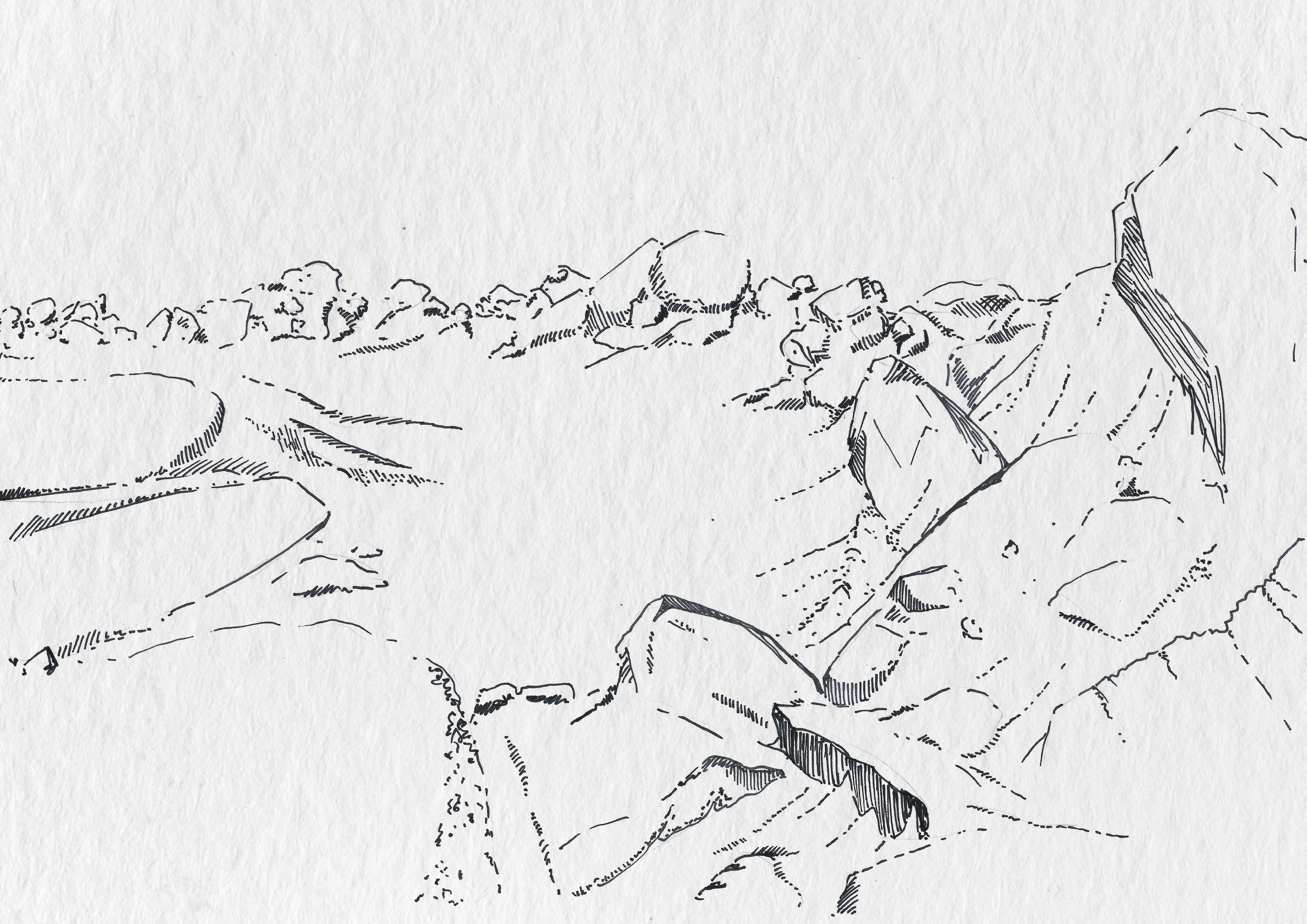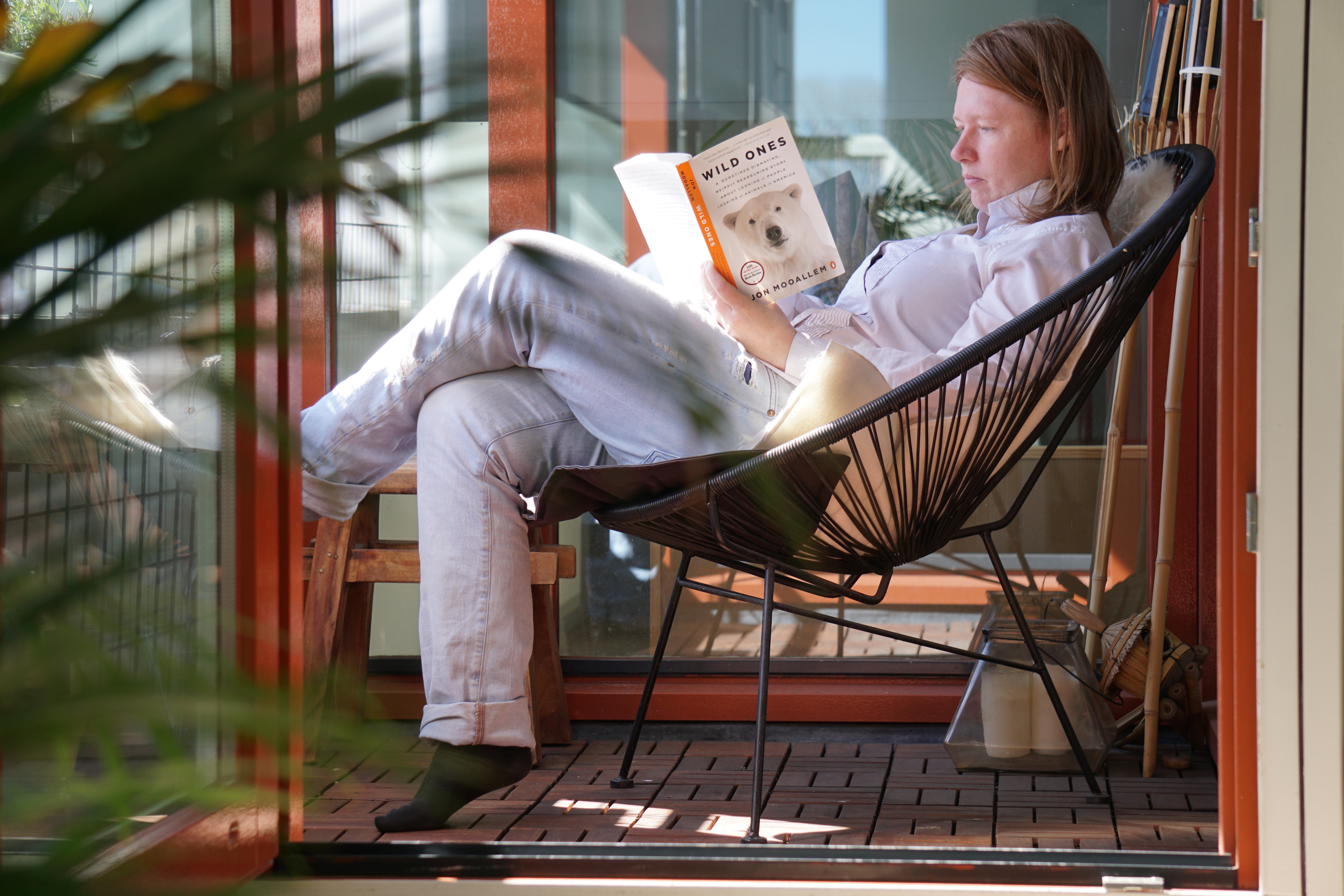Covid 19 personal whereabouts: Difference between revisions
| Line 7: | Line 7: | ||
=Making a New Home= | =Making a New Home= | ||
In 2019, at the start of my doctoral studies I relocated to Katarokwi; Kingston, Ontario on the traditional homelands of the Haudenosaunee, Anishinaabek and Huron-Wendat nations | In 2019, at the start of my doctoral studies I relocated from Amsterdam, the Netherlands, to Katarokwi; Kingston, Ontario on the traditional homelands of the Haudenosaunee, Anishinaabek and Huron-Wendat nations. | ||
The first months after my arrival were filled with activities to learn about- and build a relationship with this land, the communities on it, and its stories. I immersed myself, for my hope was that this place could perhaps eventually become a new home for me. Which it did, in multiple ways, over time. | I had never intended this move to Kingston to be only a launch pad for my research in Inuit Nunangat. I arrived ready to commit- aspiring to make Kingston my new home. | ||
The first months after my arrival were filled with activities to learn about- and build a relationship with this land, the communities on it, and its stories. I immersed myself, for my hope was that this place could perhaps eventually become a new home for me. | |||
Which it did, in multiple ways, over time. | |||
The building of these relationships however became somewhat more complicated from 2020 onwards. The COVID-19 pandemic ended up uprooting me from all my home-bases, both Dutch and Canadian. | The building of these relationships however became somewhat more complicated from 2020 onwards. The COVID-19 pandemic ended up uprooting me from all my home-bases, both Dutch and Canadian. | ||
Revision as of 19:11, 24 January 2025

The ice pressure ridge remind us that agency is not a property that is possessed by individual readers, researchers and authors. Our ways of becoming knowledgeable always correspond intra-dependently with many other agential forces, both human and non-human.
When the spread of Covid-19 was declared a pandemic it shaped an ice-pressure ridge that was so immense, that it not so much required me to redirect- as it asked me to re-position. Both figuratively and literally.
Making a New Home
In 2019, at the start of my doctoral studies I relocated from Amsterdam, the Netherlands, to Katarokwi; Kingston, Ontario on the traditional homelands of the Haudenosaunee, Anishinaabek and Huron-Wendat nations.
I had never intended this move to Kingston to be only a launch pad for my research in Inuit Nunangat. I arrived ready to commit- aspiring to make Kingston my new home.
The first months after my arrival were filled with activities to learn about- and build a relationship with this land, the communities on it, and its stories. I immersed myself, for my hope was that this place could perhaps eventually become a new home for me.
Which it did, in multiple ways, over time.
The building of these relationships however became somewhat more complicated from 2020 onwards. The COVID-19 pandemic ended up uprooting me from all my home-bases, both Dutch and Canadian.
The Netherlands in Isolation
After the Covid-19 pandemic broke out, I initially chose to take shelter in my country of origin; the Netherlands. I stayed there for three months.
Having a high-risk parent, I did not take shelter in my family home in the Netherlands, and as a result I initially had to pay rent apartments both in Kingston and the Netherlands.
After the first two months of self-isolating in Amsterdam, I moved in with my sister and her family, where I slept on an airbed and shared a room with my 2-year old nephew. Despite a lack of privacy, it was nice to be close to family. I preferred it above being alone in an apartment.

Nevertheless, my commitment to be present, and make a new home in Canada- combined with the financial stresses of double rent- eventually drew me back to Ontario at the first seemingly reasonable opportunity.
Kingston in Isolation
The reality of returning to Canada as an international student, during the Covid-19 pandemic, was- while I acknowledge my privilege of being able to stay safe and healthy- rough for me.
Once back in Ontario, I was stuck in my tiny in Kingston apartment by myself, without a university campus to go to, or access to the regions in which I would have to conduct my fieldwork.
I wrote a lot.
In the year that followed, between my return to Kingston in the late Summer of 2020 and the Summer of 2021, I worked on what would eventually become the testimonial reading of Gjoa Haven’s voices of Thunder.
By April 2021, I received the news that I was the recipient of a Vanier Canada Graduate Scholarship, and by the end of June 2021 I had to return to the Netherlands for family matters. During this latter trip, I was offered an affordable apartment in Amsterdam- and decided, considering the ongoing uncertainty of Covid-19 pandemic to accept it. One month later, In July 2021, I received the news that we could travel to Nunavut again for fieldwork, and Canada slowly started to open up again.
From July 2021 onward, I continued my PhD in a state of flux. I would come to Canada for fieldwork, and spent an average of six weeks up North each trip. I would then stay, on average, another six weeks in Ontario. Usually I would spend up to twelve weeks back home in the Netherlands, before I would return again to Canada.
This rotation was possible because of my decision in September 2020 to purchase a campervan: "Butter". As a result of this purchase, my time in Canada took a completely different shape in comparison to what it had been before.
You have found a way to return to Cut 1 and learn more about the creative outputs, through which we were planning to share Gjoa Haven's Voices of Thunder.
Alternatively, you can accept an invite to tag along and take a ride in "Butter". This ride will allow you to learn about the opportunities that Covid-19 brought to my research, before returning to Cut 1.
